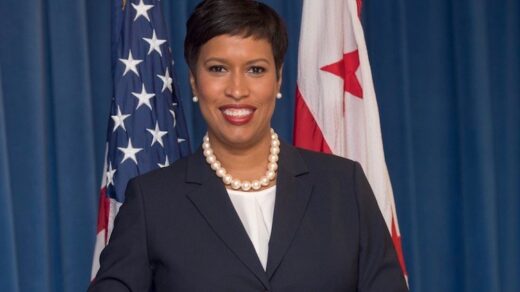Eurovision icons share memories of the contest that changed their lives forever
Author: Marcus Wratten
Some Eurovision contestants get nul points, others win the entire contest. On the night, though, and in the weeks and months leading up to it, all Eurovision entrants share the same experience.
The ceaseless schedule of rehearsals and interviews. A rollercoaster of emotions, from sheer panic to unbridled joy. The lack of sleep, the drunken celebrations.
What happens to each contestant after, though, is a different story. Some become cultural diplomats, others return to the contest years later. Some take literal years to rest and recuperate. Ahead of the 2023 grand finale (13 May), former Eurovision legends share their memories from the contest, and delve into how it changed their lives forever.
UK’s Cheryl Baker of Bucks Fizz, winner in 1981
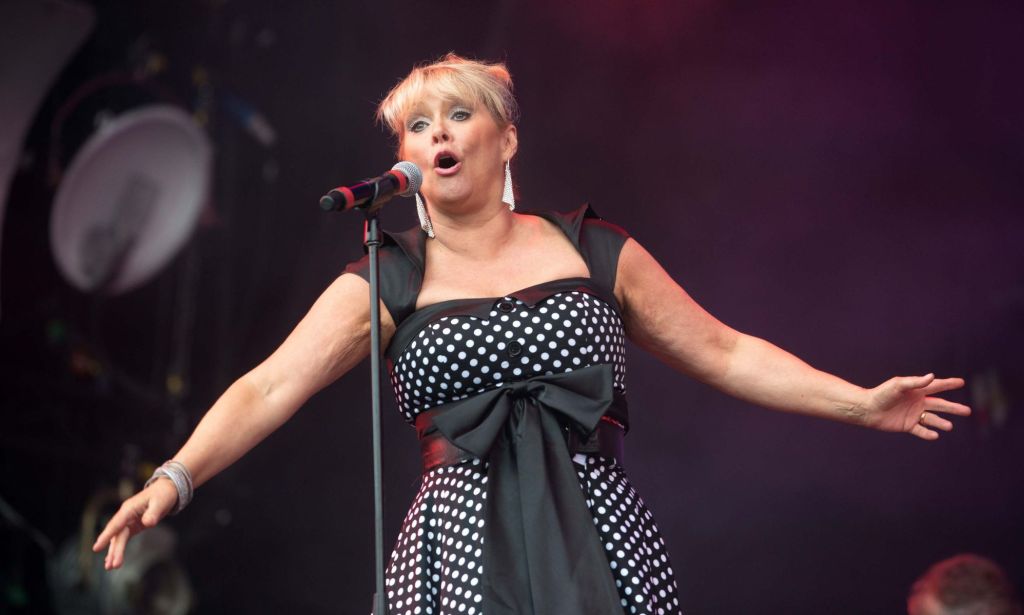
“It was my childhood dream to do Eurovision, but even having said that, I didn’t realise how much it would change my life,” says Cheryl Baker, one quarter of ‘80s band Bucks Fizz.
The group met on 11 January 1981, and on 4 April, just three months later, they won Eurovision with “Making Your Mind Up”. Forty years on, they remain one of just five UK entrants to win the contest, and their iconic skirt reveal is still one of the contest’s defining moments. It took a lot of work to get there, though.
“It was nonstop to the point where when we did the competition in Dublin, we were like robots. I mean, there was no way we were gonna get it wrong. We just about had time to go to our respective homes and sleep,” she says.
Cheryl knew “instantly” after winning that things would never be the same.
“We were surrounded by cameras from all over the world. It literally was that life changing moment when you look out and you think, ‘my life is not going to be the same anymore’.”
Yet, despite the fame and glory from the big win, she still wishes there was a bit more recognition for what they brought to the contest.
“If we’d won a gold medal, we’d get an OBE. They don’t recognise it because it’s just music, which really p****s me off, I’ll be honest with you. It’s such an important day and it brings the whole of Europe and beyond together in unification. It should be recognised more by the government.”
While the damehood is still pending, the gigs have never stopped.
“We’re still living that moment. We do “Making Your Mind Up” as the last song, and I introduce it and I say: ‘I suppose we’d better do that silly song’. They all scream and get their cameras ready for the skirt rip moment. I love it.
“How lucky am I to still be getting that kind of response?”
Finland’s Saara Aalto, 25th place in 2018
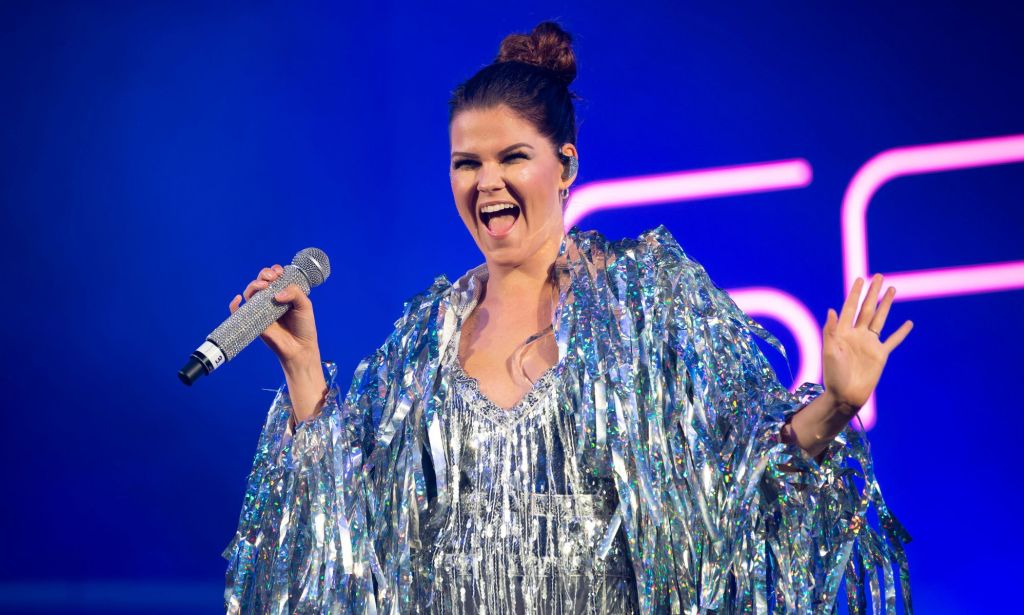
Saara Aalto’s Eurovision journey extends back nearly twenty years, having competed in Finland’s selection process in 2004, 2011 and 2016. In 2018, she made it to the final, with her single “Monsters”. Despite coming in 25th place, Saara proves that the buzz of the contest consumes every entrant – no matter where they eventually place.
“Now that I’m looking back, I would say it was the hardest time of my life. It was the busiest time of my life,” she says, explaining that during Eurovision final week, she also released her sixth studio album, Wild Wild Wonderland. That period of time was so exhausting, she says, that she still considers herself to be resting and recovering now.
“Honestly, I had a week when I didn’t even have time for a shower… but at the same time, it was a dream, you know? So it’s a bit difficult to be like, ‘it was the hardest time’ when it was actually the best time as well.”
On stage, Saara belted out her big pop tune while strapped to a spinning board, before free-falling off the stage at the song’s end.
“I’m doing all these crazy, scary things on stage, and I’m actually not very brave in that way. I’m not a person who likes to do extreme sports or anything. Why did I put myself into that situation?” she reflects.
“I remember when we had our first rehearsal on the Eurovision stage, and the first time I had to fall from the upper stage, I couldn’t do it. I held onto the stage rail, but it wasn’t built for that. It almost collapsed, the whole thing.”
Saara entered Eurovision fresh off of the hype from her time on The X Factor UK, which landed her with “a lot of pressure” to succeed. Despite ending up at the bottom of the leaderboard, she has absolutely zero regrets.
“I wouldn’t change anything. I am so happy with everything that we did and everything I got to experience.”
Sweden’s Loreen, winner in 2012, returning in 2023
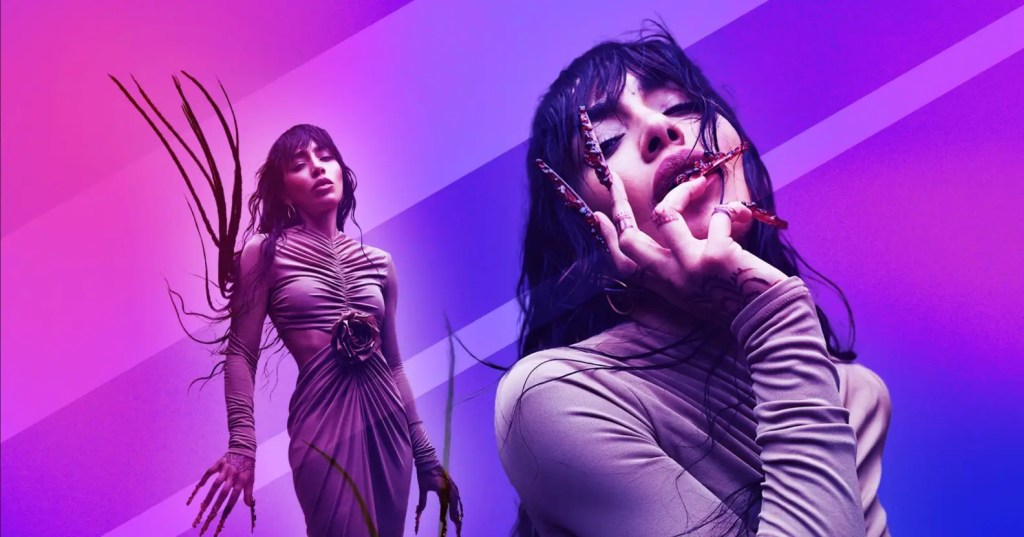
There is arguably no bigger Eurovision icon than Sweden’s Loreen, who, after trampling the contest in 2012 has returned for another punt in 2023.
Her 2012 winning single “Euphoria” gripped gays worldwide, and remains a Pride playlist favourite. Did she know immediately that it would be adored by the LGBTQ+ community?
“To be honest, I didn’t. I was never thinking in terms of ‘it’s gonna be huge’, like that,” she says.
“Before “Euphoria”, I was trying to find my space, like, where do I belong? I was searching, and wherever I went, there was ‘no’. All of a sudden, I came knocking on this door to the LGBT community. And they’re like, you know, what, come on in.”
It’s no surprise she’s decided to return this year considering the electric response she received the first time around.
“There’s never any negative energy. It’s basically the antidote to negative energy,” she says of the contest. “I’m so happy about [returning]. You don’t even realise. I can’t even express in words how happy I am. To be able to do this together with you guys… there are no words for it.”
UK’s Katrina Leskanich of Katrina and the Waves, winner in 1997
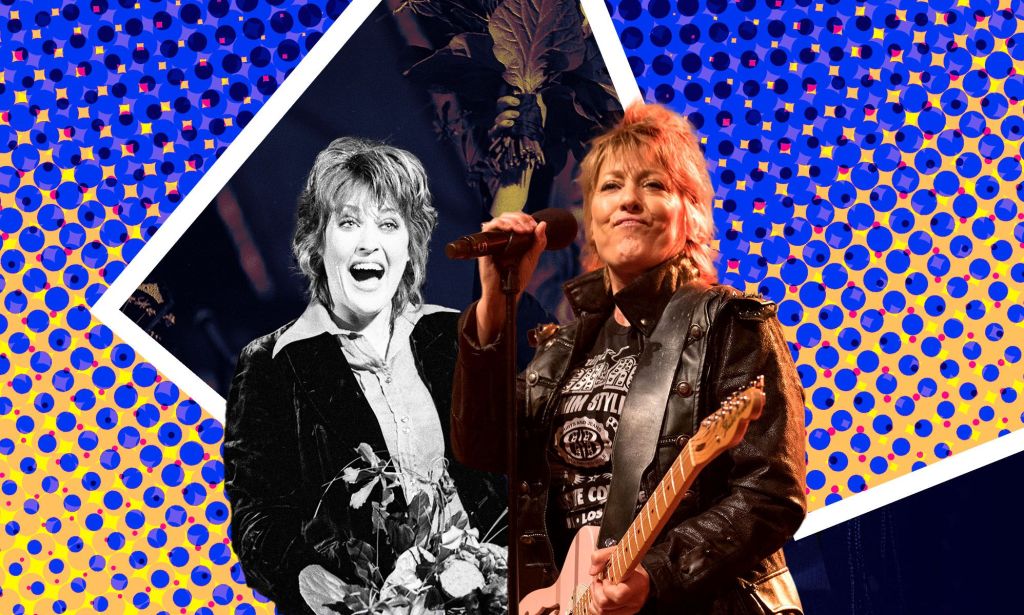
There was only one emotion Katrina Leskanich felt before heading onto the Eurovision stage to perform what would become her winning single, “Love Shine A Light”: “Sheer bloody panic”.
“The biggest challenge was that I had never seen Eurovision before taking part. The BBC gave me a stack of 12 video tapes of past Eurovisions and told me to get my head around this over the weekend. Halfway through I was more confused than ever,” she says, adding that she also had to listen to people insisting the band would “lose credibility” if they took part.
Despite the fear and apprehension, they did it, and won.
“Everyone backstage was celebrating with generous amounts of alcohol even before the votes started coming in. There was still a bit of doom and gloom within our little group. It was a mixture of relief that my performance went pretty well and trepidation over the fear of the possibility of coming last,” she remembers. “When we started stacking up 12s, the champagne was flowing and we were giddy with the possibility of winning.”
After claiming the top spot, the band remember the chaos and euphoria of going back on stage to perform the song one last time.
“The audience were clapping along so loudly that I could barely hear the music to know when to come in,” Katrina shares. “I could see Terry Wogan in his commentary booth, he raised two glasses, one with champagne and the other with Baileys Irish Cream and I waved back.
“Back at the hotel, Terry [Wogan] and I drank a few Black Velvets (Guinness and champagne) and smoked a couple of cigars until 4am, then I had to get up again two hours later for breakfast TV.”
Ukraine’s Tina Karol, 7th place in 2006
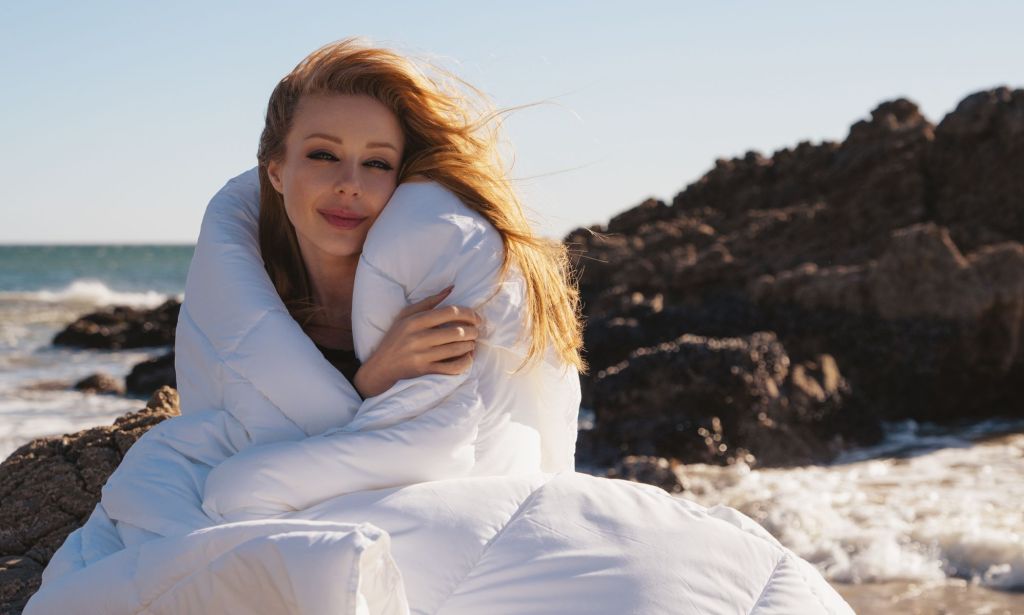
“I remember that I was very scared because it was just the beginning of my career,” says Tina Karol, who was 21 when she headed to Eurovision with her single “Show Me Your Love”.
“Of course I was dreaming to be a singer, but I never thought I would represent my country for the whole of Europe.” Now, she’s a singer, a TV presenter, an actress, a philanthropist, and a cultural diplomat. In 2020, Ukrainian president Volodymyr Zelenskyy gave her a state award for outstanding contributions to the country.
“I tried to be my best and now when I watch that video, I always feel shame a little bit,” she laughs. “If you will ask me, ‘What did you feel on stage?’, I don’t remember. Nothing. I was on a mission. Nothing else I can remember.”
“A lot of people represent the country on Eurovision. Not everyone can hold this high top position to be an A-list artist. This is very hard work, and I’m proud that now, I look [at] my age and I’m 21 when I was on Eurovision. Now I can analyse how I grew up. Now I represent my country as a cultural diplomat.”
This year, as part of Eurovision 2023’s solidarity and partnership with Ukraine, Tina will return to the contest to perform a remix of “Show Me Your Love” as part of the flag parade. It will be the first time she’s performed it since 2007.
The performance is important in the face of Russia’s invasion.
“I would like to bring one message: Ukraine will win,” she says firmly, referring to war. “Eurovision is one of the fronts where we bring our culture and show you that we are brave, strong, and talented.”
UK’s SuRie, 24th place in 2018
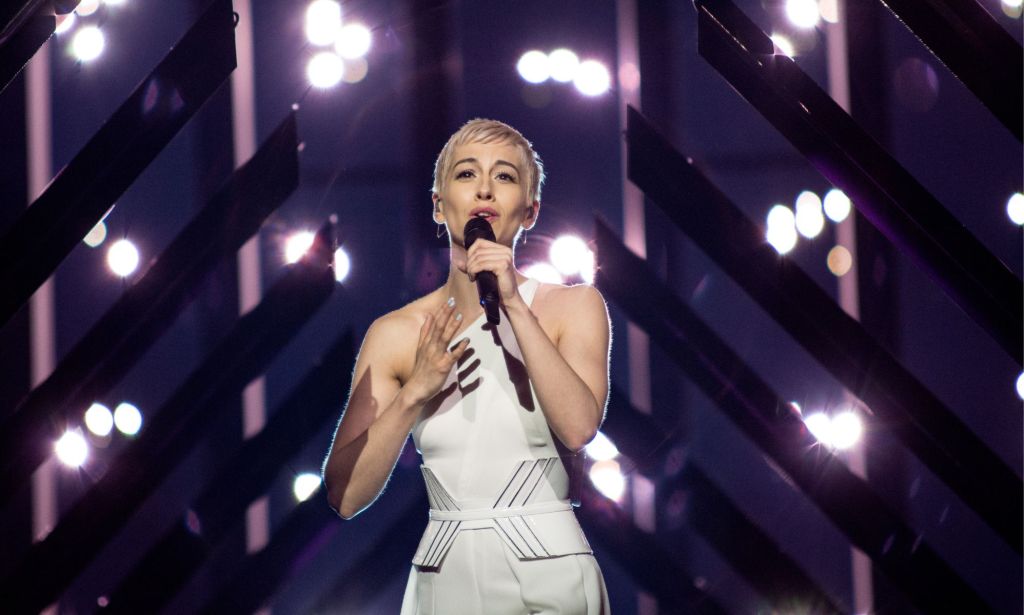
“Nothing truly prepares you for the magnitude of Eurovision, with the amplification of adrenaline and attention and pressure, and then the comedown,” says SuRie, who helmed the UK’s Eurovision presence in 2018 with her single “Storm”.
In the months leading up to the final, she binned alcohol, caffeine, and junk food. She battled snobbish music insiders and press intrusion, with journalists camping outside her house. She describes Eurovision as “like a boomerang, because it sends you out [into the world], and in some ways you’re then right back to kind of where you started”.
Despite failing to get anywhere near the top ten, SuRie’s performance in the final is seared into the nation’s memory. Midway through the song, a protestor grabbed the mic. Chaos ensued.
“That will stick with me forever, like it or lump it,” she reflects now. “That’s a unique moment that I wouldn’t wish on anyone, but it happened, and I tried my best to deal with it as best as I could in that moment.”
She tried, and she succeeded. When she finally got the microphone back, her performance came alive.
“When the security had wrestled the mic out of his hands, it actually just rolled back to my feet. You don’t see that, but I’m there at the end of the light tunnel. It rolls back to my feet, and so I just go ‘OK, that’s mine. Pick it up. Let’s go’.
“That crowd roared with this raw love and electricity that I doubt I will ever experience on that level again. It still gives me chills.”
Due to the incident, SuRie’s evening ended with a “very serious turn”. The police were called, while security guards and TV producers pulled her between staying until the show’s end, and leaving the premise immediately.
Yet, in spite of a rough run, the contest has undeniably changed her life in the best way.
“Eurovision means a hell of a lot. For the times in my life that it has featured and given me this huge boost personally and professionally, I owe it a lot,” she says. She’s performed in Pride festivals across the country, and Eurovision fans still buy her music today – her new album Building A Woman is soon to be released.
“I’m so lucky because I didn’t expect the Eurovision community to be so loyal. I keep expecting that the phone won’t won’t ring but it continues to.
“Life has peaked. I’m appearing on Bargain Hunt on Friday. There’s nothing more to do. We’re done.”
Israel’s Netta, winner in 2018
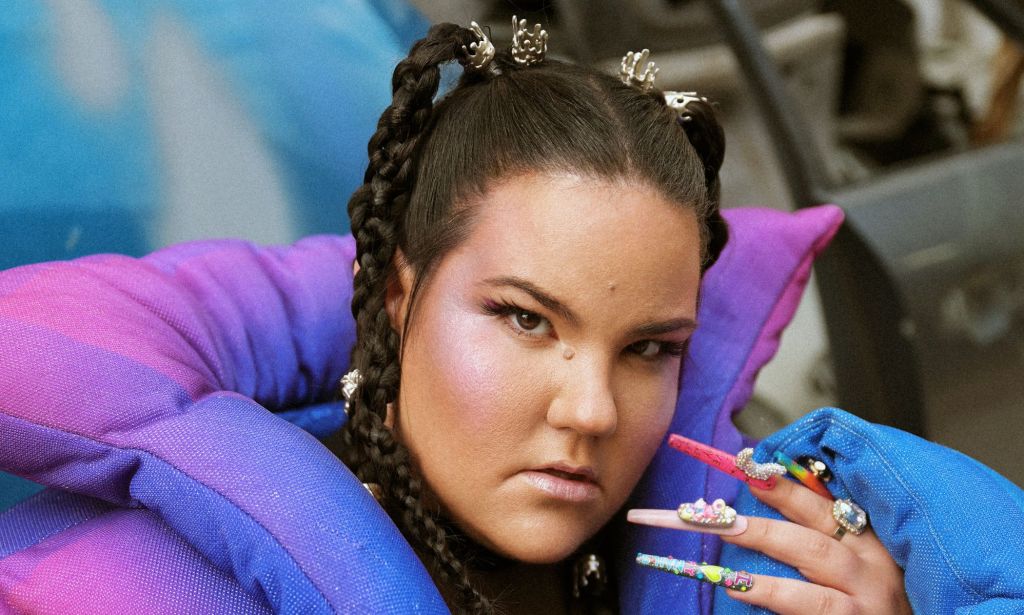
“I really enjoy how people resonate with the song and its power,” says Netta on her Eurovision winning single, “Toy”.
“To really comprehend what happened, it took years. It took years to comprehend what I did to millions of people.”
As soon as Netta hit the Eurovision circuit with her signature brand of avant-garde pop and vocal acrobatics, she immediately gained a loyal queer fanbase. One fan, a Chinese woman who Netta met in New York, even told her that she helped her to realise that she was trans.
“She said: ‘Netta, five years ago, I was a 15-year-old boy in China, and somehow we got to see your show in Eurovision. I don’t know how, but it changed something in me. I saw you and I felt this is what I want to be’.
“It made her run away from China and become the beautiful woman that she is.”
As well as changing the lives of LGBTQ+ people around her, Netta remembers clearly how Eurovision changer her own life, simply by enabling her to pay rent.
“Everything happened to me in the course of six months,” she says. “I decided to apply to a reality show [Israel’s Eurovision selection contest, Rising Star]. I was hoping that people see me and I could make a living because I couldn’t pay my rent.
“All of a sudden, I won. All of a sudden, a song is written for me. I go through Eurovision and then I win that. It was a big circus that happened in my life.
“It’s so amazing and beautiful to be in something that is so much bigger than you.”
Eurovision 2023’s grand final takes place on 13 May 2023 in Liverpool.
Actual Story on Pink News
Author: Marcus Wratten


